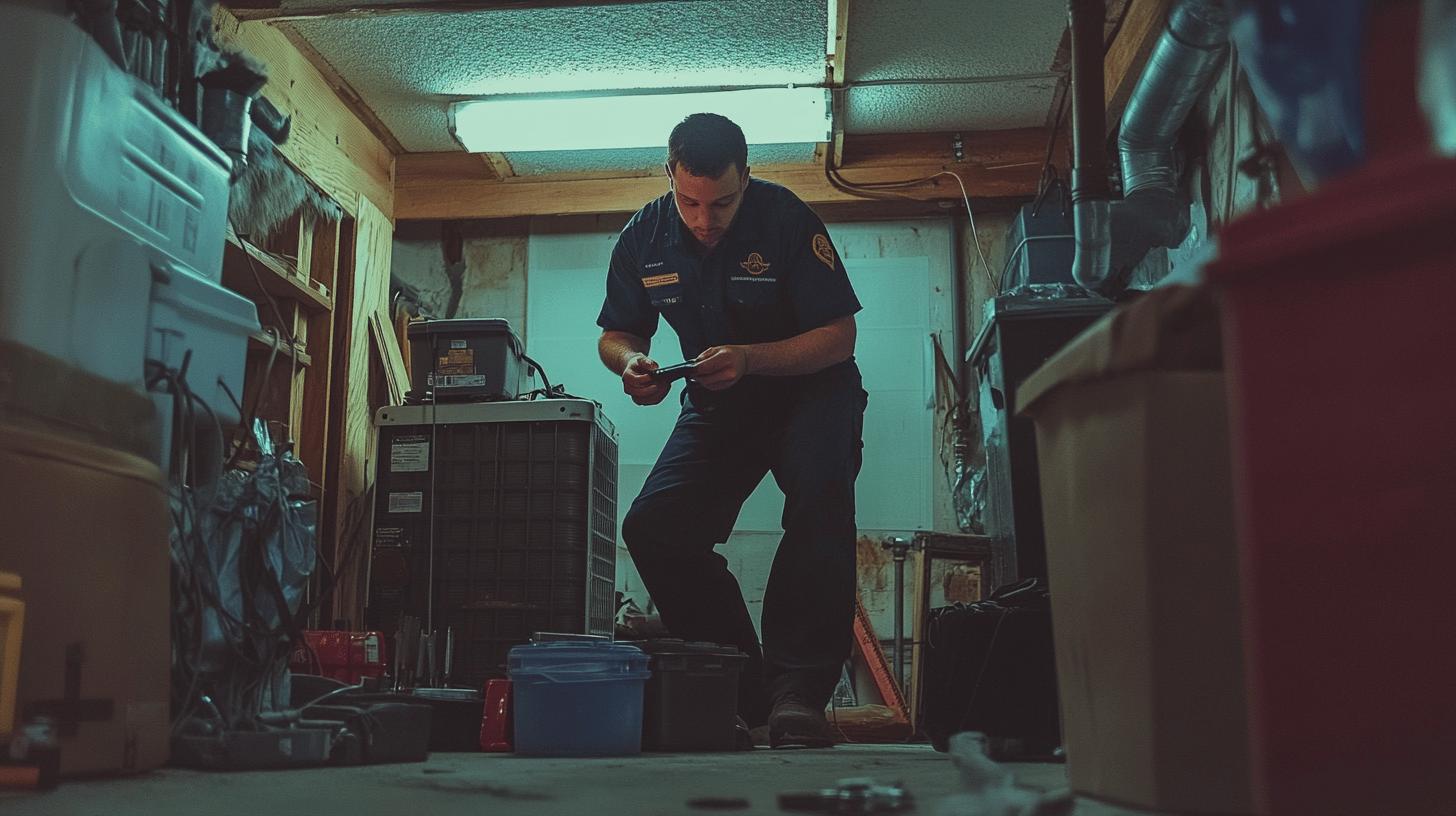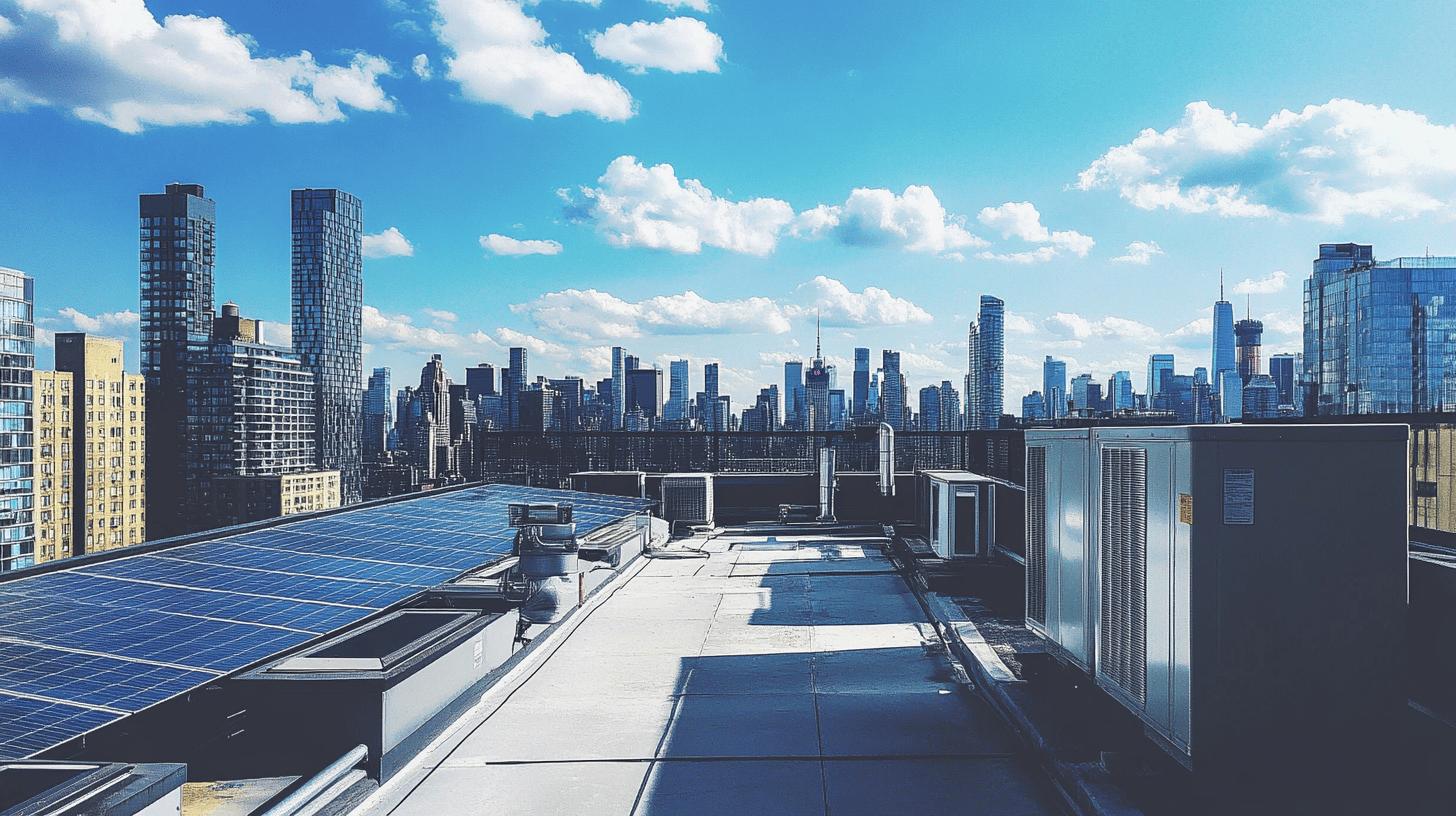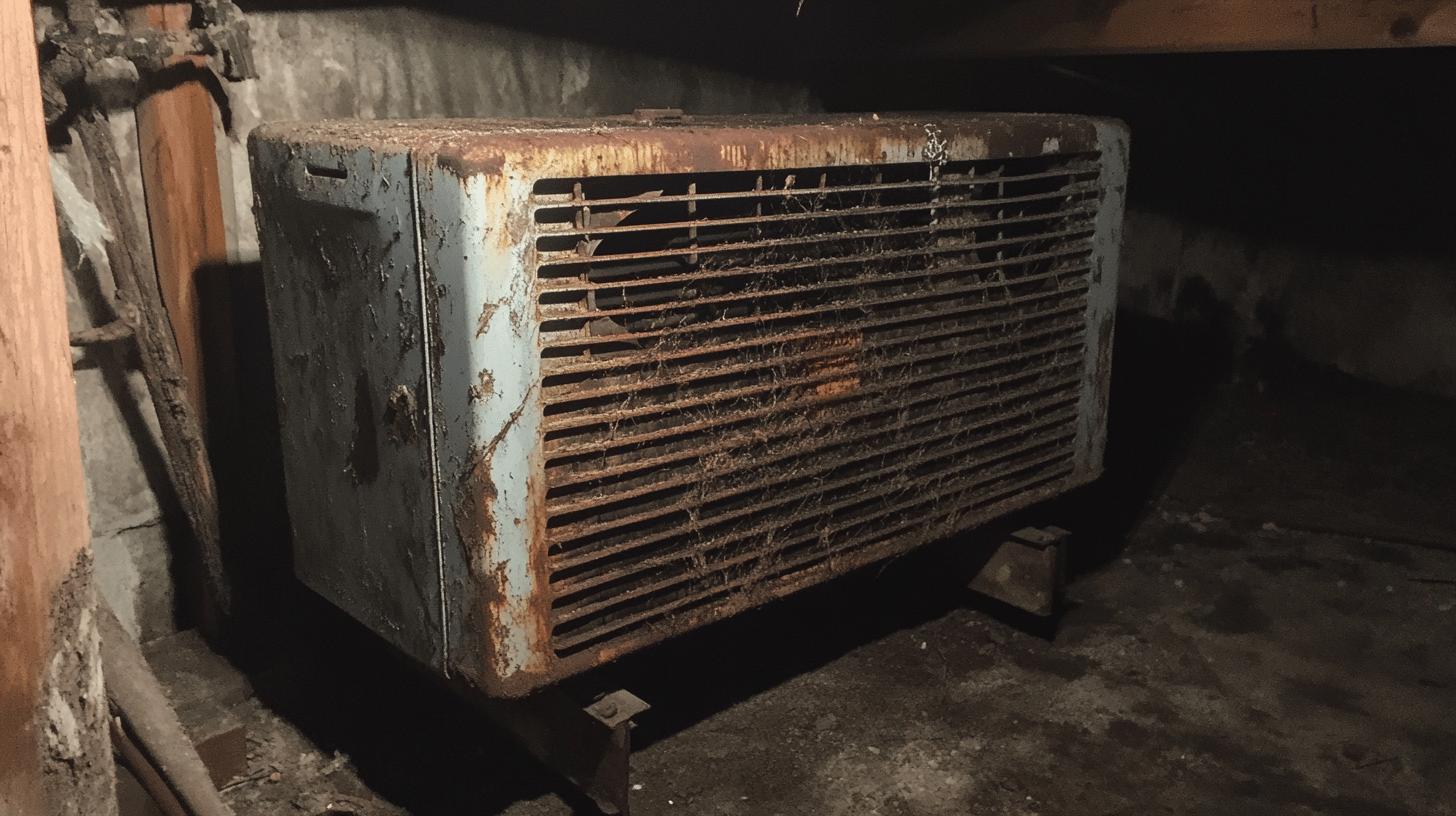TL;DR:
- Signs to replace HVAC system: frequent repairs, rising energy bills, poor airflow, unusual noises, inadequate humidity control, foul odors, R-22 refrigerant usage, inconsistent temperatures.
- Lifespan: Air conditioners 12-15 years; heat pumps 10-15 years; compressors are costly to replace.
- Cost factors: size, efficiency, type of system, installation complexity.
- $5,000 rule: If age x repair cost > $5,000, consider replacement.
- Benefits of new systems: lower energy bills, enhanced air quality, increased comfort, environmental benefits.
- Best time to replace: off-peak seasons (spring/fall) for savings and convenience.
- Consult professionals for optimal selection and installation efficiency.
Is your HVAC system falling behind and making your energy bills skyrocket? It might be time for a replacement. In this guide, we’ll cover the signs that your system needs an upgrade, like constant repairs, higher bills, or old technology that’s not cutting it anymore. Find out how to spot these issues and keep your home comfy and efficient with a new system.
Signs Indicating When to Replace an HVAC System
Noticing when your HVAC system is starting to fail can save you from surprise breakdowns and expensive fixes. Look out for warning signs like needing constant repairs, which usually means the system is getting old. Another clue is higher energy bills—this could mean your system is struggling to work efficiently, costing you more money. Paying attention to these signs can help you stay comfortable and decide when it’s time for a replacement.
- Frequent repairs
- Rising energy bills
- Poor airflow
- Unusual noises
- Inadequate humidity control
- Foul odors
- Use of R-22 refrigerant
- Inconsistent temperatures
If your HVAC system uses outdated R-22 refrigerant, it’s a big warning sign. This refrigerant is no longer in use because of environmental rules, so systems with it need to be replaced. Issues like weak airflow or trouble keeping temperatures steady can also mean key parts are failing. These problems not only make your home uncomfortable but could mean it’s time for a full replacement.
Old systems can’t compete with newer ones when it comes to efficiency and eco-friendliness. Upgrading gives you benefits like lower energy bills and better air quality. If your system is over 10-15 years old, especially a heat pump, it’s probably time to switch to a newer, more reliable model that saves money in the long run.
Assessing the Lifespan of Your HVAC System

Knowing how long your HVAC system lasts is important. Air conditioners usually work well for 12 to 15 years if maintained properly. Heat pumps, which handle both heating and cooling, last about 10 to 15 years. These timeframes help you decide when to start thinking about a replacement. If major parts like the compressor need expensive repairs, it might be smarter to replace the whole system instead of fixing it.
- Air conditioners: 12-15 years
- Heat pumps: 10-15 years
- Compressors: expensive to replace
Taking care of your HVAC system is the best way to make it last longer. Simple tasks like changing filters and getting regular checkups can prevent breakdowns and keep everything running smoothly. Maintenance helps your system work better, use less energy, and avoid costly repairs. For older systems, professional inspections are especially important—they catch small issues before they become big problems, saving you money and keeping your home comfortable.
Cost Considerations for Replacing an HVAC System
When buying a new HVAC system, the price depends on several factors. Larger systems generally cost more because they require more materials and are more complex to install. High-efficiency systems may have a higher upfront cost, but they save money over time by reducing energy bills. The type of system you choose and the complexity of the installation also play a role in determining the overall expense.
The $5,000 rule is a helpful guideline when deciding whether to repair or replace your HVAC system. Multiply the system’s age by the estimated repair cost. If the result is more than $5,000, it’s usually better to replace the system. This prevents spending money on an older system that may not perform as well or last much longer.
Upgrading to a modern HVAC system can lead to significant long-term savings. New systems are energy-efficient, which lowers utility bills, and they may qualify for tax credits that reduce the upfront cost. A new system also improves home comfort and supports environmental conservation, making it a smart and practical investment.
Benefits of Upgrading to a New HVAC System

Why get a new HVAC system? The big win is better energy efficiency. New systems use less energy, which means lower utility bills—sometimes saving you up to 20%. They waste less energy, work more consistently, and help you save money while also being better for the environment.
- Lower energy bills
- Enhanced air quality
- Increased comfort
- Environmental benefits
How does a new HVAC system improve air quality and comfort? Modern systems come with upgraded filters that trap dust, allergens, and pollutants, making your home’s air cleaner and healthier—especially if you have allergies. They also maintain steady temperatures, keeping your home more comfortable overall.
Are there any perks for upgrading? Definitely! Many areas offer tax credits or incentives for installing energy-efficient systems, making it a smart financial move with added savings.
Timing and Tips for Replacing Your HVAC System
When is the best time to replace your HVAC system? The best time is during off-peak seasons like spring or fall. During these times, HVAC service demand is lower, which means you might get discounts and faster installations. Replacing your system during mild weather also causes less disruption since you won’t need to rely on heating or cooling as much. Plus, it saves you money and adds convenience.
- Replace during off-peak seasons
- Consult with professionals for system selection
- Evaluate home insulation for efficiency
Why should you consult professionals for HVAC replacement? Professionals know how to pick the right system for your home based on size and efficiency. They can also assess your home’s insulation to help your new system run better. With their expertise, you’ll get a smooth installation and a system that lasts longer. Relying on skilled technicians helps you avoid common problems and ensures your system runs efficiently, keeping your home comfortable.
Why should you consult professionals for HVAC replacement? Professionals know how to pick the right system for your home based on size and efficiency. They can also assess your home’s insulation to help your new system run better. With their expertise, you’ll get a smooth installation and a system that lasts longer. Relying on skilled technicians helps you avoid common problems and ensures your system runs efficiently, keeping your home comfortable.
Final Words
Knowing when to replace your HVAC system can save you money on frequent repairs and high energy bills. Signs like poor airflow, strange noises, and bad odors often mean it’s time for a replacement instead of a repair. Understanding your system’s typical lifespan and maintaining it properly can help, but costly repairs often point to replacement as the better option.
Consider the factors that affect replacement costs, like system size, efficiency, and installation complexity. The $5,000 rule can help you decide when replacement is more cost-effective than repairing an old system.
Upgrading to a new HVAC system boosts energy efficiency and air quality. Replacing your system during off-peak seasons can also save you money.
Following these tips will help you keep your home comfortable and energy-efficient in the long run.
FAQ
How do I know when my HVAC needs replacing?
Recognizing when to replace your HVAC system hinges on several signs. These include frequent repairs, increasing energy bills, poor airflow, unusual noises, and inadequate humidity control. Such symptoms suggest it’s time for a new system.
When should I replace my HVAC system in Texas?
In Texas, considering the intense summer heat, it’s wise to replace an HVAC system when it’s over 15 years old or showing signs of inefficiency, to ensure comfort and cost savings. Regular check-ups aid decision-making.
Should I replace my 30-year-old air conditioner?
Replacing a 30-year-old air conditioner is recommended. Modern units offer better efficiency, reduced energy bills, and improved performance. Older systems may lack parts and compliance with current regulations.
Should I replace my 20-year-old air conditioner?
A 20-year-old air conditioner is generally due for replacement. Technological advancements enhance efficiency and comfort, often making new systems more cost-effective over time.
What is the typical lifespan of an HVAC system?
An HVAC system typically lasts 10-15 years, with regular maintenance extending these timelines. Air conditioners last 12-15 years while heat pumps have a 10-15 year lifespan.
Should you replace HVAC before it breaks?
Replacing your HVAC before a complete breakdown is beneficial. It prevents sudden discomfort and possibly higher costs. Older systems are less efficient, so proactive replacement can save money.
What factors affect the cost of replacing an HVAC system?
Cost factors include system size, efficiency, type, and installation complexity. Larger, more efficient systems and complex installations are pricier, but they often provide long-term savings.
What are the benefits of upgrading to a new HVAC system?
An upgraded HVAC offers lower energy bills, improved air quality, increased comfort, and environmental benefits. It may also qualify for government incentives due to enhanced efficiency.
At what age should I replace my HVAC unit?
Consider replacing your HVAC unit around 10-15 years. At this age, efficiency typically declines and repairs become more frequent and costly, signaling it’s time for an upgrade.
When is the best time to replace an HVAC system?
The best time for HVAC replacement is during off-peak seasons like spring or fall. Costs are generally lower, and professionals have more availability for consultations and installations.
Replace air conditioner in a car: When is it necessary?
Replacing a car’s air conditioner is necessary if it fails to cool effectively, emits unusual noises, or leaks refrigerant. Regular maintenance can prevent sudden failures and costly repairs.

